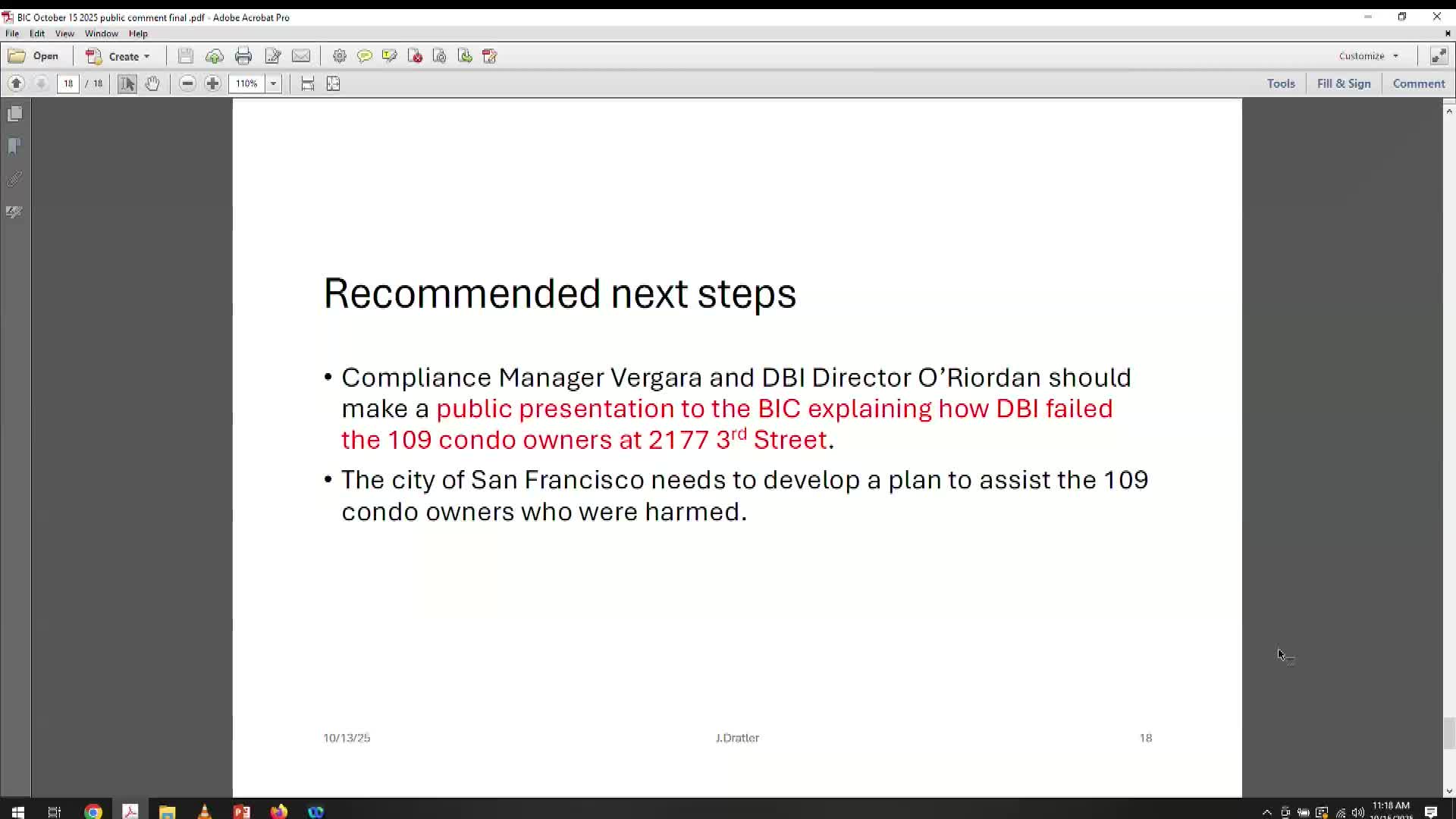Building Inspection Commission backs ordinance to standardize permit timelines, recommends amendments
Get AI-powered insights, summaries, and transcripts
Subscribe
Summary
The Building Inspection Commission voted unanimously to recommend Board of Supervisors Ordinance file 250811, which would set a two‑year expiration for permit applications and a one‑year rolling expiration to commence work on issued permits, with limited 180‑day extensions.
The Building Inspection Commission unanimously recommended the Board of Supervisors adopt Ordinance file 250811, which would replace San Francisco’s valuation‑based permit timeline with a flat two‑year expiration for permit applications and a one‑year rolling deadline to commence work on issued permits. The commission also approved sending recommendations and amendments to the Board.
Rainelle Cooper, legislative aide to District 5 Supervisor Bilal Mahmud, who sponsored the ordinance, told commissioners the changes are intended to “streamline this process” and reduce confusion caused by San Francisco’s current valuation‑based timelines. Cooper said the proposal would give applications a two‑year lifespan and allow issued building permits 365 days to show commencement of work; that one‑year clock would reset if an inspection or other department activity is logged.
Tate Hanna, Legislative Affairs Manager for the Department of Building Inspection (DBI), said the measure aligns the city more closely with the California building code on the permit side and gives building officials discretion to grant 180‑day extensions for both applications and permits when there is justifiable cause. For issued permits the draft includes a single, one‑time 180‑day extension limit to match state code practice, Hanna said. The ordinance would also treat base site permits and subsequent addenda so the commencement timeline continues as addenda are submitted.
Commissioners pressed for clarification on several points. One commissioner asked whether there should be a limit on how many building‑code cycles a project may remain “locked in” to its original code; Hanna and other staff said the proposed ordinance removes local discretion that currently allows officials to require projects to meet newly adopted codes after extensions, aligning instead with state practice that generally permits projects to remain under the code in effect at filing. The commission suggested consideration of a backstop (for example, limiting how many code cycles a project may remain behind), but no specific cap was added.
Commissioners also asked how the department will track the new timelines in the PTS permitting system. Hanna said DBI has audit logs and activity categories in PTS that can record inspections and other progress; to allow time for implementation the ordinance includes a six‑month delay between enactment and effective date so the department can update systems and procedures.
During general public comment, Jerry Drantler asked whether 109 condominium owners at 2177 Third Street could legally continue occupying units when a large permit had expired and alleged that time‑limited occupancy (TCO) certificates for that project had been repeatedly extended. Drantler said he believes special inspections and several administrative permits had been issued improperly for that development and said a transaction log request was denied. His remarks were recorded as public comment and not a formal part of the commission’s action.
The commission voted to recommend the ordinance with amendments. The roll call vote was unanimous.
